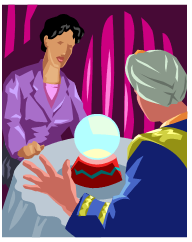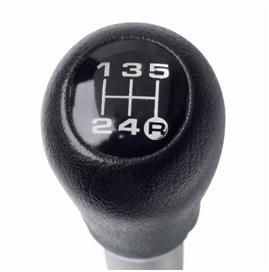Separation
 This is one of the simplest things to do and, yet, it is not easy – Separation.
This is one of the simplest things to do and, yet, it is not easy – Separation.
You can separate the whites from the colors when doing laundry. You can separate two kindergarteners scrapping on the playground. You can even separate a dog from his bone (be careful with this one). We seem to have trouble separating people from their behavior.
The Grasshopper whispered this the other day: “My thoughts about you aren’t you.”
I sat with the phrase for a moment and knew it was about judgement. When I’m having judgmental thoughts about someone, I’m really assessing their behaviors and not them. If I fail to separate the two, I miss an opportunity to make a connection with the person. Reminds me of yesterday . . .
My son was on vacation and we had our yearly father/son golfing outing. The pro shop paired us up with a couple of guys we didn’t know. We made brief introductions and shared some small talk before teeing off. The club had signs posted that no alcoholic beverages could be brought onto the premises. The rule is less about people getting drunk on the golf course and more about them making money selling it to you. There is also a standard rule that you don’t drive your golf cart past a certain point on each hole. There are reminder signs posted on each hole near the area to avoid. These fellows broke out their private stash of beer by the 2nd hole. They also drove their cart past the warning signs and parked it right next to the green. They were immediately admonished by an official at the club. When their clubs dug chunks of dirt and grass (divots) off the fairway, they didn’t replace them – a common practice. Even Tiger Woods does it. Did I mention they smoked cigars? I found myself judging these guys. The gift of awareness didn’t come for a couple more holes when I discovered I was equating their behavior with them. I had set up a wall between us.
I then separated the behavior from the people and something magical happened – camaraderie formed. We learned more about the golf course from the one guy and the other guy provided many laughs that my son and I would not have enjoyed had separation not happened. I had shut them out due to my judgements and was about to miss out on all they had to offer had I continued.
There is always something to be gained by interactions with others. Many times we shun the interaction through judgement. We fail to separate the behavior from the person. It reminds me of what one of my mentors, the late Dr. Dave Dobson would say, “Get closer to someone who makes you uncomfortable and notice their patterns. You will discover not only more about them but about yourself as well.”
The next time you’re separating an egg white from its yolk, bear this in mind, if you don’t use this same practice with people, you may stumble, and as the old joke says, “the yolk’s on you.”
All the best,
John
http://cdbaby.com/cd/johnmorgan
http://www.cafepress.com/grasshoppernote/3580301
Be Sociable, Share!

 Did you ever notice that “formative” and “family” begin with the same letter?
Did you ever notice that “formative” and “family” begin with the same letter? It’s pretty hard to get where you’re going if you don’t know where you are.
It’s pretty hard to get where you’re going if you don’t know where you are. Ten years ago today I began a new job. It lasted a little over 3 years. I got to thinking how different my life is today than it was ten years ago. I’m not alone in that assessment. Many people can easily look back on their lives and see many differences between then and now.
Ten years ago today I began a new job. It lasted a little over 3 years. I got to thinking how different my life is today than it was ten years ago. I’m not alone in that assessment. Many people can easily look back on their lives and see many differences between then and now. Do you have a motto? According to
Do you have a motto? According to  I’m not very photogenic. It’s not a complaint; just a fact. Most pictures of me are not very flattering. This reminds me of a famous quote of golfing great, Lee Trevino when assessing golf clubs. He said,
I’m not very photogenic. It’s not a complaint; just a fact. Most pictures of me are not very flattering. This reminds me of a famous quote of golfing great, Lee Trevino when assessing golf clubs. He said, It seems there are so many places to put your attention. On closer inspection though, it comes down to persons, places or things.
It seems there are so many places to put your attention. On closer inspection though, it comes down to persons, places or things. What is the triggering mechanism that gets you into high gear? Perhaps a story will provide an answer . . .
What is the triggering mechanism that gets you into high gear? Perhaps a story will provide an answer . . . Seems most young men who excel at baseball hold a vision of playing in the “big” leagues. Some make it to the minor leagues but most of them get stuck at that level. They are destined to play in a different stadium than the one of their dreams. If you’re not a baseball fan, read on.
Seems most young men who excel at baseball hold a vision of playing in the “big” leagues. Some make it to the minor leagues but most of them get stuck at that level. They are destined to play in a different stadium than the one of their dreams. If you’re not a baseball fan, read on.
 It seems reasonable to me that life is a 3 act play.
It seems reasonable to me that life is a 3 act play.